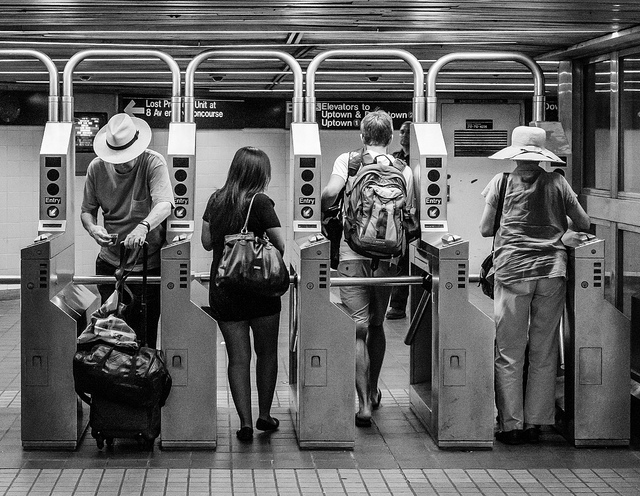American transit agencies may be grossly underestimating how much safety issues hold back ridership among women, according to new research presented in Washington this week.
A study based in Los Angeles found women were significantly less likely — about half as likely as men — to take advantage of a new rail line near their house. Women are also more likely than men to report fears about crime associated with transit and say they expected it to influence their travel behavior.
The study [PDF], presented at the Transportation Research Board's annual conference, was based on survey research of households in Los Angeles. About 200 households were surveyed before and after the new Expo light rail project opened.
Those who lived within a half-mile of an Expo station increased their total volume of rail transit trips by 4.3 percent per week. But there was a large gender gap. For women respondents, it was just 2.7 percent.
Those who participated were also surveyed about their attitudes toward the environment and crime. Environmentalism was a much weaker predictor of transit ridership than safety concerns, said lead author Hsin-Ping Hsu and her team. And concern about crime was a statistically significant predicator of decreased transit use among women.
"Fear of crime is a crucial restrictor on women's use of transit," Hsu wrote.
The research team concluded that it may be more effective for transit agencies to emphasize safety messages rather than stress the environmental benefits if they want to encourage ridership.
Other countries have tried a variety of things to address the safety issues facing women on transit, including experiments with women-only traincars in China. But as Hsu notes in the study, "in the U.S. ... transit agencies typically do not think specific programs should be implemented despite recognizing this issue."
Last year, Oregon Rep. Peter Defazio, the new chairman of the House Transportation and Infrastructure Committee, introduced legislation to require transit agencies to protect riders and employees from sexual assault. But the bill didn't go anywhere. The Mineta Institute did a study on best practices addressing women's safety on transit. One measure they found was helpful was allowing "night stops" like they do in Canada and Sweden. These policies allow women to ask the bus driver to stop at any location — including locations that are not posted bus stops — during nighttime hours. The driver is supposed to allow only the woman to exit at those stops.






